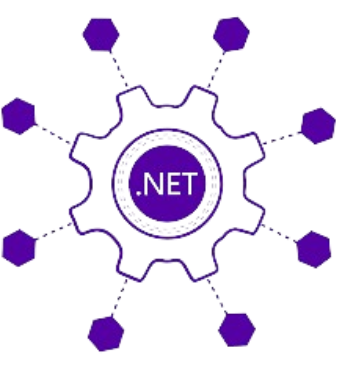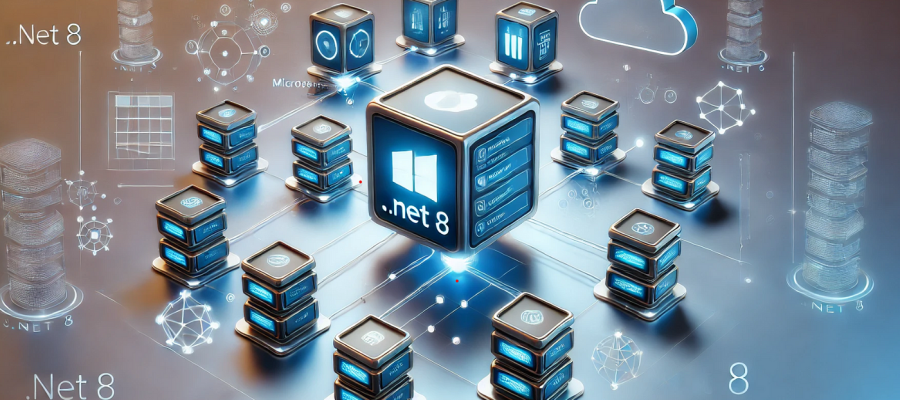
Microservices using .Net

Are you ready to take your development skills to the next level? Join our 30-hour course on Microservices using .NET 8 or .NET 9, designed for beginners and professionals who want to build scalable and modern applications.
In this course, you will learn how to create and manage microservices architecture using the latest versions of .NET. Microservices break large applications into smaller, independent services that can work together. This approach makes apps faster, more flexible, and easier to maintain.
What You Will Learn
- What are Microservices and why they are important
- Differences between monolithic and microservices architecture
- Setting up projects with .NET 8 / .NET 9
- Creating APIs for each microservice
- Using databases for each service
- Communication between services using REST and messaging
- Securing microservices with authentication
- Deploying services using Docker and Kubernetes
- Real-world project for hands-on practice
Why Learn from Divine Tech Skills?
- Easy-to-understand lessons
- Practical examples and real-world scenarios
- Step-by-step guidance
- Latest .NET 8 and .NET 9 tools and techniques
- Perfect for job-ready skills or upgrading your knowledge
This course is perfect for developers, students, and working professionals who want to learn modern backend development using .NET and microservices architecture.
Introduction to Microservices Architecture
Session 1: (2 hours)
Introduction to Microservices Architecture
1. What is Microservices Architecture?
- Overview of Microservices vs. Monolithic Architecture
- Benefits and Challenges of Microservices
- Microservices Design Principles
2. Understanding .NET 8 and Its Role in Microservices
- Overview of .NET 8 features for Microservices
- Introduction to .NET SDK and runtime
- Why choose .NET for Microservices
Building a Microservice with .NET 8
Session 2: (4 hours)
Building a Microservice with .NET 8
1. Creating Your First Microservice Application
- Setting up a .NET 8 Web API Project
- Organizing your project structure (API, Data, Service layers)
- Basic HTTP GET/POST requests in Microservices
2. Dependency Injection in .NET 8 Microservices
- Using DI to manage service dependencies
- Scoped, Singleton, and Transient services
3. Implementing Data Persistence
- Using Entity Framework Core with Microservices
- Using SQL Server databases
Service Communication
Session 3: (5 hours)
Service Communication
1. Synchronous Communication: REST API & HTTP
- Designing REST APIs with .NET 8
- Consuming and producing JSON APIs
- Error handling and response codes in Microservices
2. Asynchronous Communication: Messaging and Event-Driven Architecture
- Introduction to Messaging Queues (RabbitMQ, Azure Service Bus)
- Using Event-Driven architecture with .NET 8
- Implementing RabbitMQ in a .NET Microservice
Service Discovery and API Gateway
Session 4: (4 hours)
Service Discovery and API Gateway
1. API Gateway with Ocelot
- Setting up Ocelot for API Gateway in .NET 8
- Routing, Load balancing, and Aggregating responses
2. Service Discovery
- Setting up Consul for service registration and discovery
- How services discover each other dynamically
3. Handling Cross-cutting Concerns (Authentication, Logging, Caching)
- Implementing Security with OAuth2 and JWT Tokens
- Centralized Logging with Serilog
Managing Microservices with Docker
Session 5: (5 hours)
Managing Microservices with Docker
1. Introduction to Docker and Containerization
- Docker Basics and Why Use Containers
- Dockerizing .NET 8 Applications
- Building and running .NET Microservices in Docker containers
2. Container Orchestration with Kubernetes
- Kubernetes Overview and Benefits for Microservices
- Deploying .NET 8 Microservices on Kubernetes
- Scaling and managing services using Kubernetes
Data Management and Distributed Transactions
Session 6: (5 hours)
Data Management and Distributed Transactions
1. Managing Data in Microservices
- Database per Service Pattern
- Implementing Sagas for managing distributed transactions
2. CQRS (Command Query Responsibility Segregation) and Event Sourcing
- Introduction to CQRS in Microservices
- Implementing Event Sourcing in .NET Microservices
- Using MediatR for handling commands and queries
Real-World Project
Session 7: (5 hours)
Real-World Project
1. Capstone Project: Building a Complete Microservices-based Application
- Design and Develop a Multi-Service Application with .NET 8
- Implement APIs, Messaging, Security, and Database Integration
- Containerize the Application with Docker and Deploy to Kubernetes
Duration: 30 Hours
- Learn Microservices from Scratch: Understand what microservices are, how they work, and how to design them the right way.
- Work with .NET Core and ASP.NET: Get hands-on experience building small, scalable services using popular .NET technologies.
- Create and Connect APIs: Learn how to build APIs and make them talk to each other smoothly. You’ll also understand how to manage them using an API Gateway.
- Use Docker for Easy Deployment: Package your applications into containers using Docker, so you can run them anywhere easily.
- Understand Service Discovery and Load Balancing: Learn how microservices find and connect with each other, and how to balance the load across them.
- Manage Data for Each Service: Explore the right way to handle data in microservices, and how services can communicate through messages and events.
- Automate with CI/CD Tools: Discover how to set up a process that automatically builds, tests, and deploys your code using DevOps tools.
- Build a Real Project: Work on a practical, real-world project that brings all the concepts together.
- Perfect for Developers and Teams: Whether you’re an individual developer or a corporate team, this course helps you build the right skills for modern software development.

